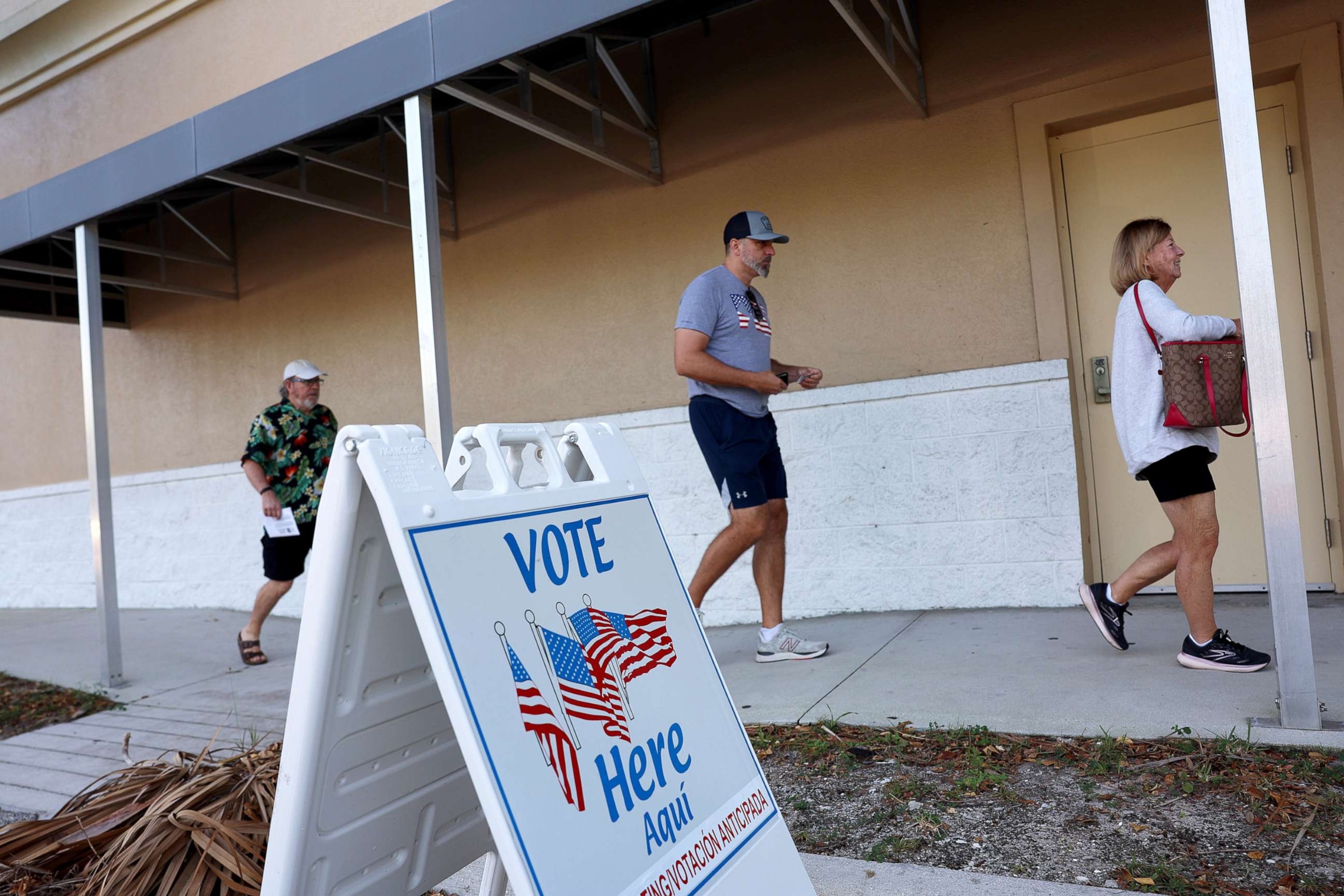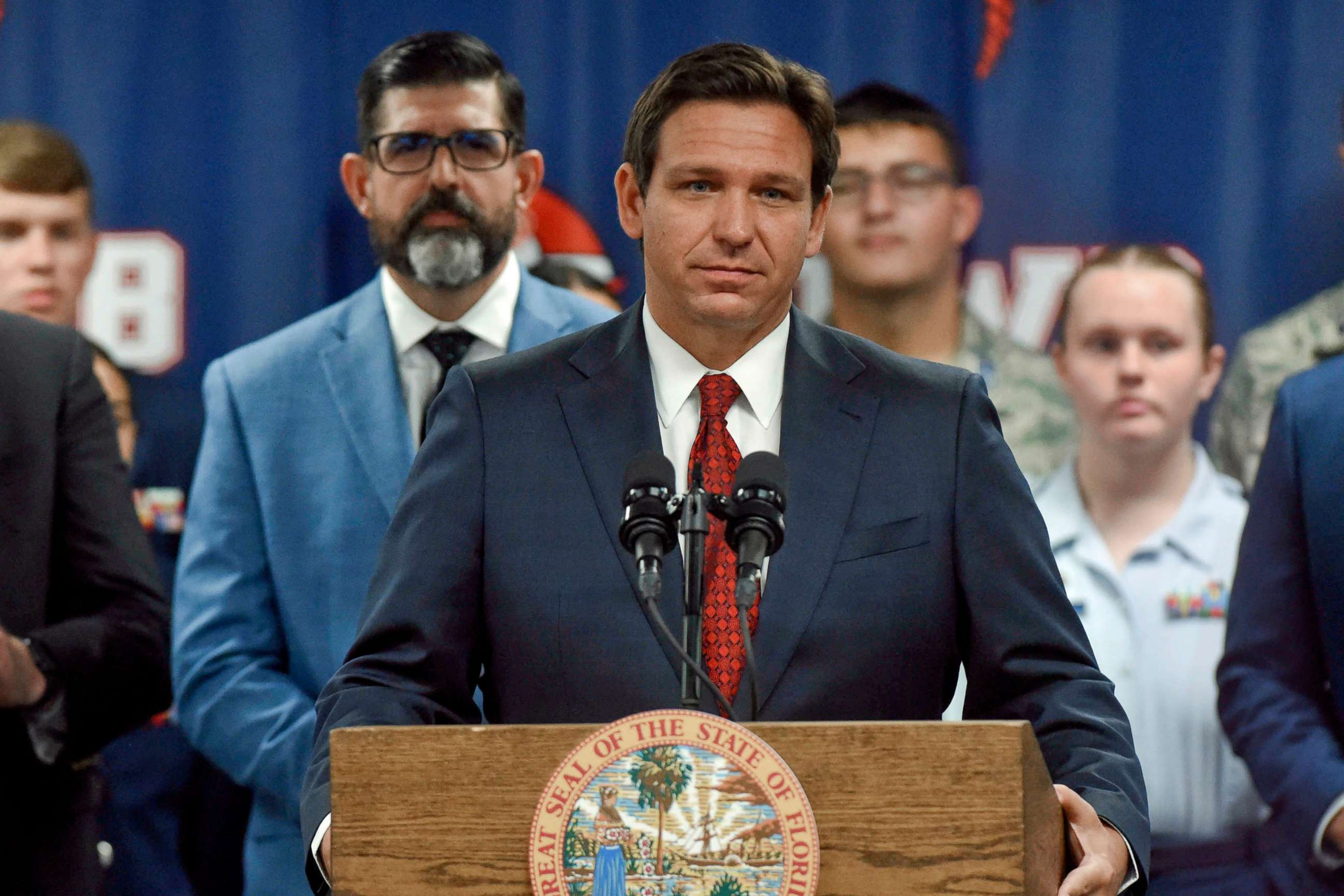How a red wave overtook Florida midterm elections and why experts think that won't change soon
Florida may no longer act as a swing state in future elections, experts said.
While Democrats were able to stave off a red wave of Republican wins across the country this election cycle, the same could not be said for Florida, a traditional swing state that may have permanently turned red, according to experts.
Presidential candidates have long considered the Sunshine State as prime battleground to fight for votes on either side of the aisle. But conservatives won big, with incumbent Republican Gov. Ron DeSantis winning 59% over Democratic challenger Charlie Crist's 40% and Republican Sen. Marco Rubio garnering 58% of the vote over Democratic House Rep. Val Demings's 41%.
This is why experts believe Florida turned red during the 2022 Midterms:
An influx of new residents is cementing Florida's status as a red state
Recent population shifts in the state -- especially in the months following the onslaught of the COVID-19 pandemic -- may explain the Republican stronghold that overtook Florida during the Midterms.
Florida is the third most populated state in the nation, after California and Texas, with a tally of 21.5 million residents in 2020, according to the U.S. Census Bureau By July 1, 2021, that number had grown to nearly 21.8 million residents, according to the bureau.
That number is expected to grow to 22 million in 2022, according to data released by the Florida Demographic Estimating Conference in July. In April, the number of residents was 3,795 more than predicted in the forecast released last December, reflecting the continued increase in migration, according to the Associated Press.

A large portion of the migration is coming from the Northeast, as people seek lifestyle changes, including warmer temperatures and perhaps politics and policies they align with, Michael Binder, assistant professor of political science and faculty director of the University of North Florida's Public Opinion Research Lab, told ABC News.
"The available evidence suggests that part of Florida's move towards increased support for Republicans over the last few cycles has been people moving to Florida, either directly or indirectly, based on politics," Gregory Koger, a professor of political science at the University of Miami, told ABC News. "That could be attitudes on COVID policy or Florida's s long, long standing opposition to an income tax."
The people coming from the north tend to be middle class or wealthier, white, and older, a demographic that tends to be "disproportionately Republicans," Binder said.
"There's a strong correlation between age and ideological conservatism," Hans Hassell, associate professor of political science and director of Florida State University's Institute of Politics, told ABC News.

Voter registration in the state supports that notion. In the 2018 midterms, registration for Democrats was up 1.5%, while in 2022, registration for Republicans was up 2%, Binder said.
In addition, traditionally blue counties like Miami-Dade and Palm Beach -- both counties that saw a large migration during the pandemic -- flipped red in 2022. While Broward County remained blue, it saw a large increase in Republican turnout, according to state figures.
All of those counties saw large incoming migration during the pandemic, the experts said, citing voter registration.
"A lot of the people that are fleeing those countries tend to be a little bit wealthier and able to escape and get here," he said, adding that accusations of Democrats practicing socialism combined with conservative religious views are often a deterrent for them to vote blue.
The number of registered Republican voters far eclipsed Democrat registered voters for the first time in several cycles, according to state voter registration data.
While 2,078,430 Republican registered to vote ahead of the 2022 cycle, there were 1,758,413 Democrat registered voters and 885,369 independent voters, the data shows.
Voter turnout could cement Florida's future status as a red state
Traditional party behavior regarding voter turnout likely also helped the Conservatives seal their victories in Florida, the experts said.
"Democrats don't vote in the same numbers that Republicans do," Binder said. "If it's kind of the normal election cycle, you can expect a plus five or plus six Republican turnout, just straight off the bat."
Voter turnout for Democrats this election cycle was "particularly poor," he said. In 2018, the percentage of Democrats who voted measured in the low 60s percentage points, but in 2022, it was about 20 percentage points lower, Binder said, Republicans, meanwhile, turned out in lower-than-usual proportions than in 2018, in the mid-to-low 60s, but were still able to easily win the state due to there simply being quite a bit more Republican voters in the electorate this time around, he added.

In Miami-Dade, in addition to the uptick in Republicans who registered to vote in the county, there has also been a shift in the Latino vote, Binder said.
While Cubans traditionally vote Conservative, there has been a "decoupling" between the Democratic Party and Latinos from other countries throughout Latin America, Hassell said.
"That seems to be the product of a prolonged, sustained and sophisticated effort by the Republican Party to appeal to the Latino community," Koger said.
The trend will likely continue as the steady migration from Latin America continues. The adults will not be able to vote right away, but their children will, Hassell added.
Former Secretary of State Hilary Clinton won there "fairly easily" in 2016 during her run for president, Koger said, but Democrats have "seen a real aversion of their support among Latinos" since then.
"We've seen Republicans make inroads there in the last couple of election cycles," he said. "I think the assumption that Democrats can consistently rely on a Latino vote is not the case."

Continuing to lose Miami-Dade County could eliminate a Democratic path to victory in future statewide elections, the experts said, adding that they believe that Florida could remain a red state for the foreseeable future.
"Going forward it will probably harder for Florida Democrats to appeal for and receive support from national Democratic Party organizations and candidates because they believe that their money is better spent someplace else," Koger said.
Incumbents like DeSantis and Rubio had the clear advantage this election, experts said. Democrats may not have showed up because they assumed those races would not be competitive, Binder said. DeSantis was up against Crist, who served as governor of the state from 2007 to 2011 as a Republican and lost the 2010 race for the Senate against Rubio.
But the advantage of incumbency does not fully explain the large victories Republicans saw. Crist, who did not have a robust campaign fund, almost didn't stand a chance, the experts said.
"He didn't really engender a lot of enthusiasm," Binder said.
ABC News' Miles Cohen and Jay O'Brien contributed to this report.




